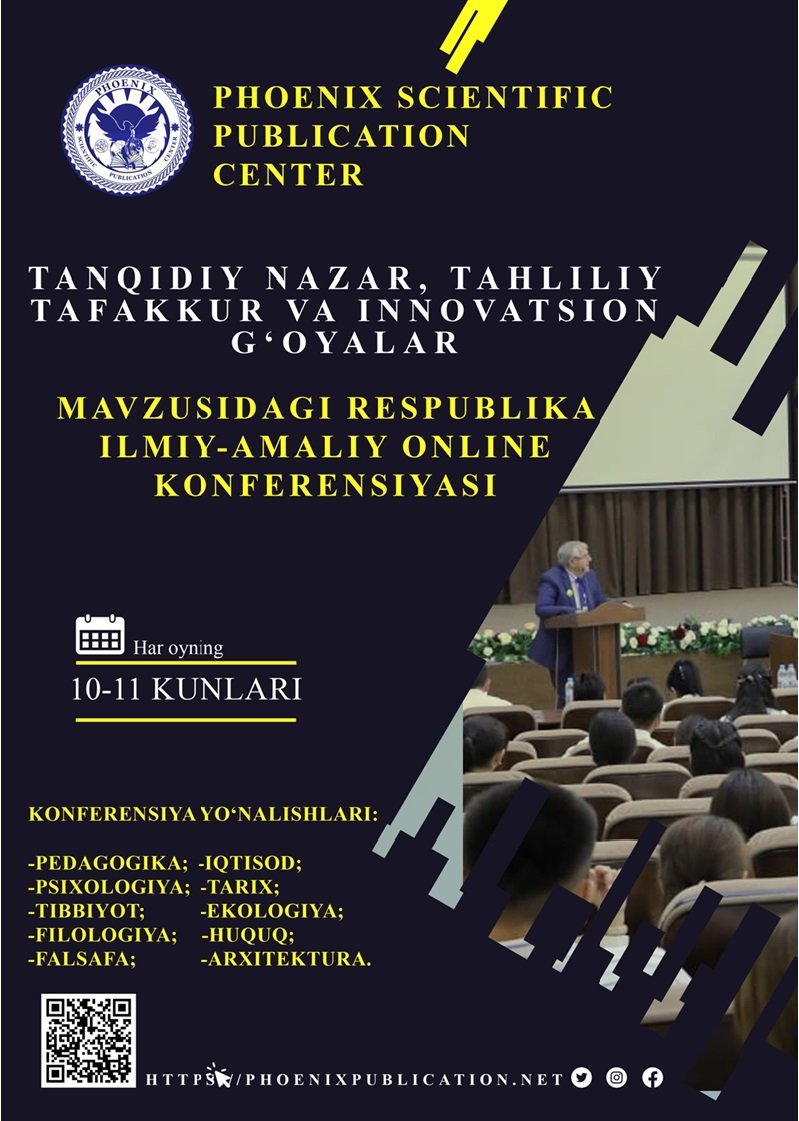Abstract
In modern education, fostering students’ independent learning skills has become a crucial objective, especially in English language teaching. The rapid integration of pedagogical technologies provides new opportunities for learners to develop autonomy, motivation, and critical thinking. This paper explores how innovative pedagogical technologies such as blended learning, flipped classrooms, online platforms, and project-based methods contribute to students’ independent learning in English classes. The research highlights practical examples, teacher roles, and challenges observed in the implementation of these technologies. The findings indicate that the effective use of technology-based approaches significantly improves learners’ self-management and engagement in language learning.
References
1. Benson, P. (2011). Teaching and Researching Autonomy. Routledge.
2. Holec, H. (1981). Autonomy and Foreign Language Learning. Oxford: Pergamon.
3. Little, D. (2007). Language learner autonomy: Some fundamental considerations revisited. Innovation in Language Learning and Teaching, 1(1), 14–29.
4. Reinders, H. (2012). Digital Games in Language Learning and Teaching. Palgrave Macmillan.
5. Vygotsky, L. (1978). Mind in Society: The Development of Higher Psychological Processes. Harvard University Press.
